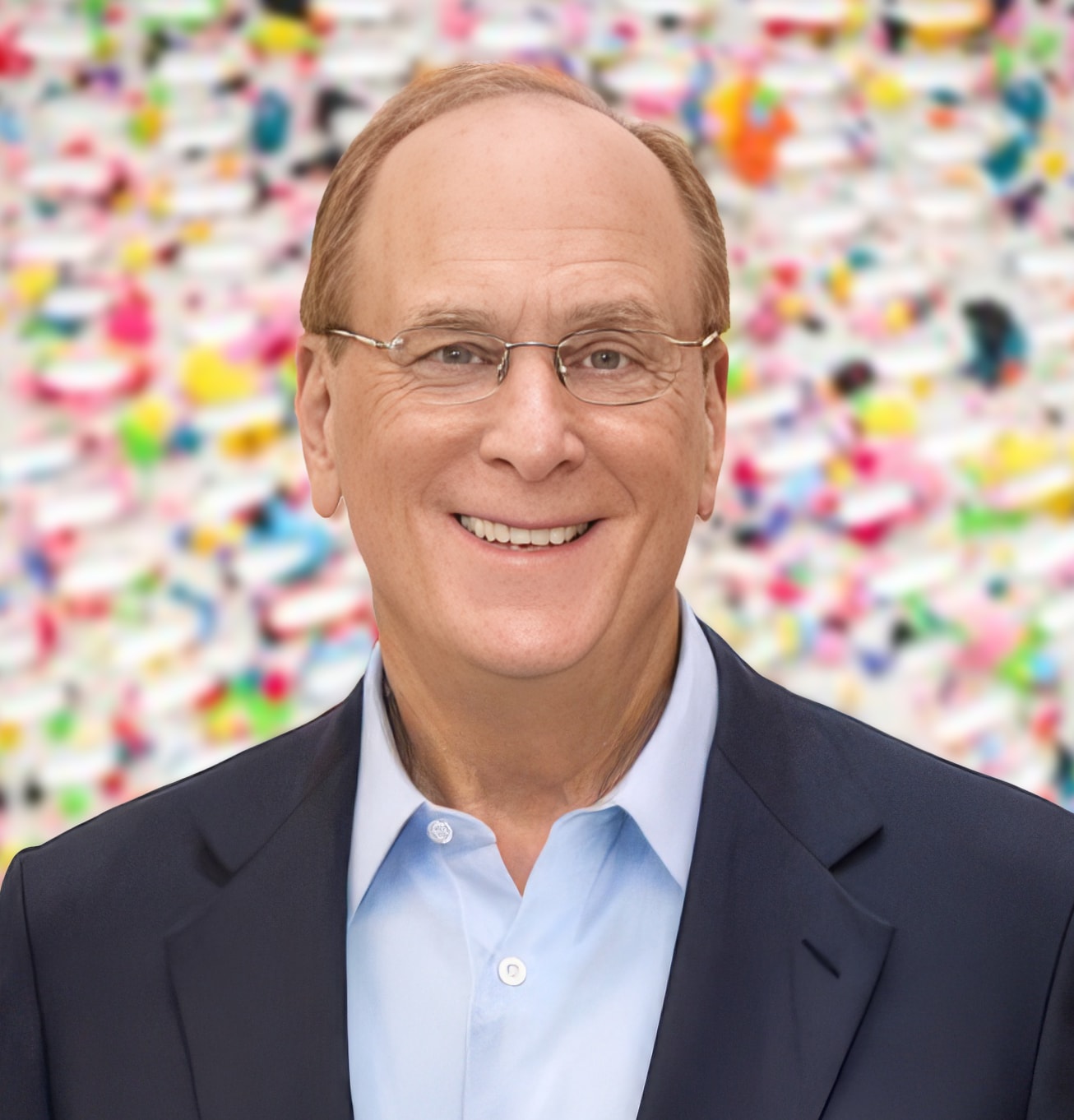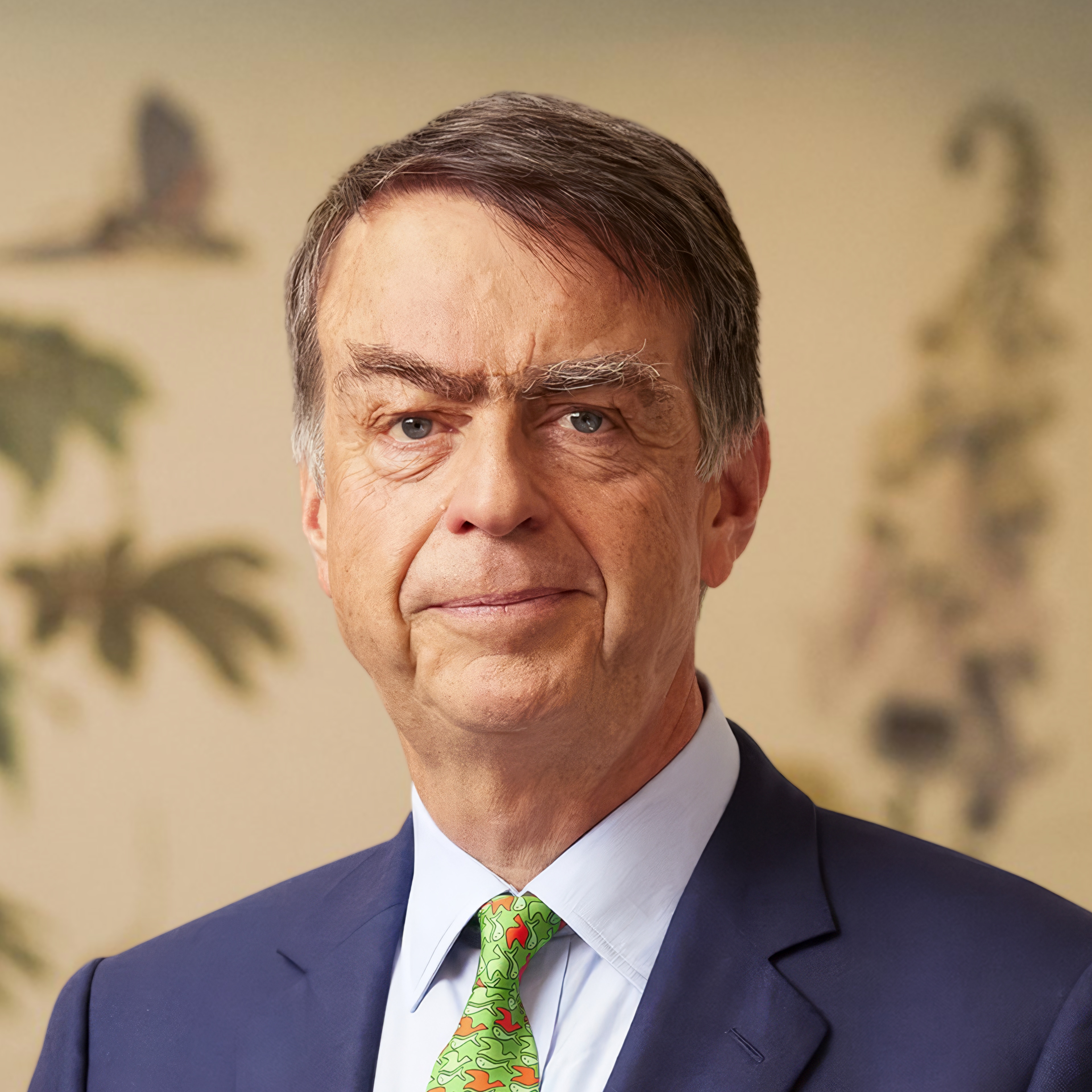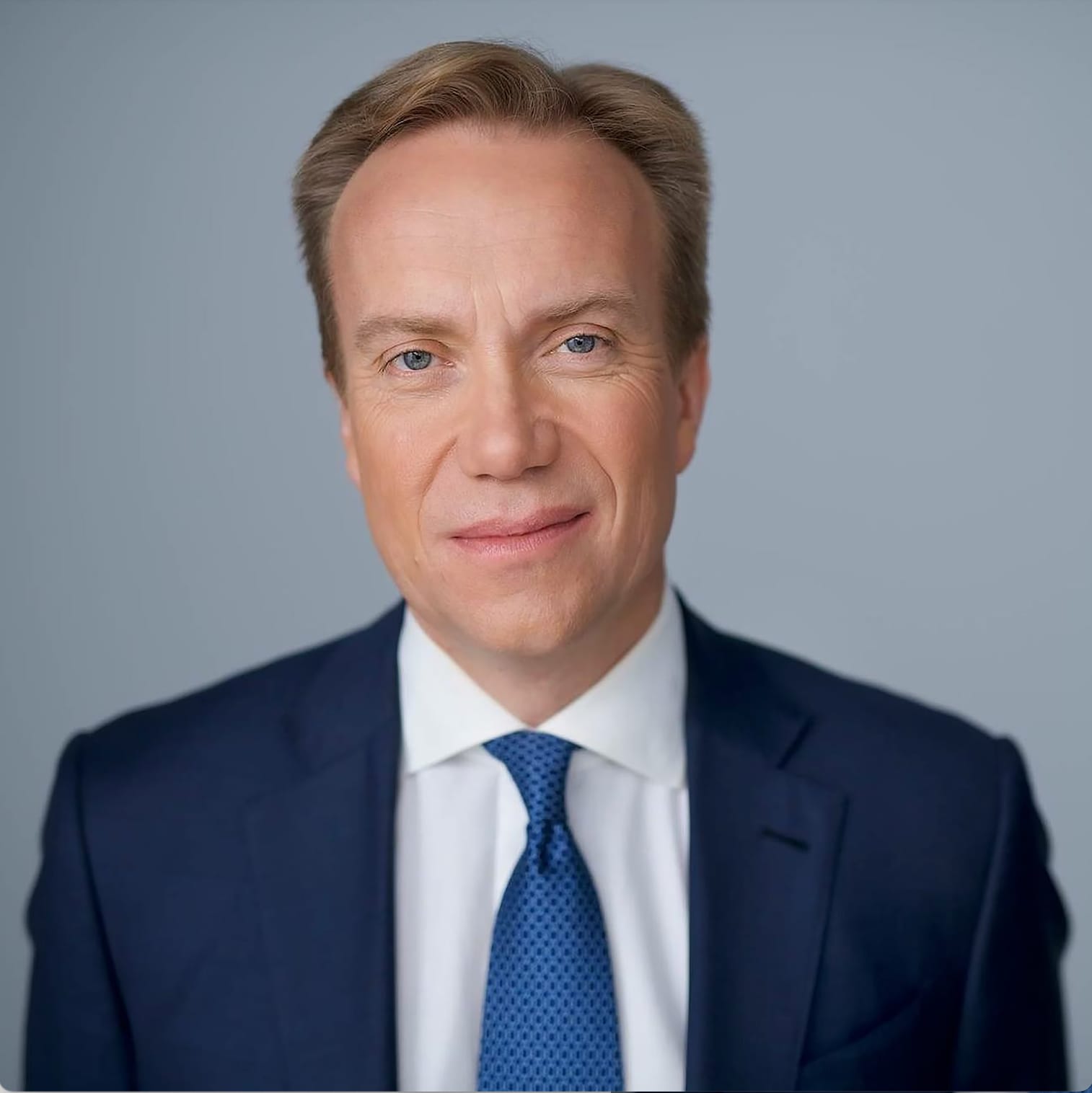
Preface
This section provides statements from the World Economic Forum’s Co-Chairs and President and CEO.
Co-Chairs' Statement

Laurence D. Fink, Ad Interim Co-Chair of the Board of Trustees

André Hoffmann, Ad Interim Co-Chair of the Board of Trustees
For 55 years, the World Economic Forum has helped convene and encourage conversation around important global challenges and opportunities. But today, incremental progress is no longer enough. The world is changing rapidly, and the need for transformation is urgent. The Forum is aiming higher: focusing on impact rather than words and demanding sharper attention to what truly matters, with a renewed commitment to rebuilding trust.
We find ourselves at an inflection point. Globalization is not ending; it is evolving – globalization 2.0. This new phase will look different from the past: more attuned to the needs of individual countries and to workers who did not benefit from globalization as much the first time around.
There is no false choice between national strength and global cooperation; both are essential. We can broaden the benefits of global growth to more people and shape growth towards sustainable prosperity – but only if we adapt to a new model that reflects today’s realities and does not create more inequalities. Capital markets can be a powerful engine for this progress – channelling savings into investments that drive innovation – a vital ingredient for addressing the world’s most critical challenges.
Sustaining prosperity will require pragmatism. Energy powers our economies, and a durable transition must be both pragmatic and ambitious. It requires keeping today’s systems reliable and affordable, while advancing long-term decarbonization through continued innovation in renewables, storage and grid flexibility. Balancing these priorities is essential to secure, affordable and sustainable energy – the foundation for growth and opportunity in the decades ahead.
None of this is achievable without trust. Trust is today’s most valuable – and most fragile – resource. Like capital, it compounds when invested wisely. The Forum must earn that trust every day through integrity, outcomes and clarity of purpose – focusing on what truly counts: greater prosperity for more people around the world.
So, how do we deliver? Three imperatives define our path: growth, resilience and innovation. These are not slogans; they determine whether communities thrive, economies endure and businesses lead. The Forum must now cut through the complexity that too often hinders progress.
At the same time, we will rethink our operations. The Forum must embrace innovation – harnessing artificial intelligence (AI), streamlining operations and empowering talent, not chasing novelty for its own sake, but serving better, moving faster and staying relevant in a world that won’t wait.
In these turbulent times, the Forum has an opportunity to act as a unique catalyst for cooperation – identifying shared goals and addressing them. We are uniquely positioned to bring together business, government and civil society to ensure that our collective efforts foster growth and expand prosperity in people’s daily lives.
As this Annual Report reflects, we have a significant opportunity to continue strengthening international collaboration. The Forum remains a platform for enabling cooperation, building trust, convening critical conversations and advancing common ground.
We are deeply grateful to our partners, stakeholders and exceptional staff for their continued trust in the Forum’s mission. Through this enduring spirit of collaboration, we will navigate today’s uncertainties and help build a more resilient and prosperous future.
President and CEO's Statement

Børge Brende, President and CEO
The work of the World Economic Forum comes during a moment of profound global change, as geopolitical and geoeconomic developments – alongside rapid advancements in frontier technologies – transform the nature of relations across and between the public and private sectors.
The past year has seen sovereignty politics ascendant around the world, even as the need for collaborative approaches has become more urgent. The growing tension between inward-looking postures and cooperative imperatives does not mean the two are incompatible. The interdependent nature of today’s world means that, although long-standing global architectures, alliances and even attitudes are being reconsidered, there are still possibilities for aligning interests and acting accordingly.
The changes under way mean that tomorrow’s global system will differ significantly from that of the past. Cooperation will need to meet the moment, principally by being adaptive and more productive. In this context, the private sector will increasingly need to take an activist role, championing or co-developing solutions alongside governments.
As this Annual Report shows, the Forum’s role in promoting dialogue and partnership is a testament to the effectiveness of multistakeholder approaches.
The challenges facing the world are complex: conflict not only persists in Europe, the Middle East and Africa, but escalatory actions by major powers have reopened sobering possibilities many had long hoped would remain in the past. While global growth is thankfully more resilient than expected, debt levels have reached record highs, and the escalation of geoeconomic rivalry is testing resilience, particularly in vulnerable markets. At the same time, new technologies offer the promise of profound benefit, but the risks of employment displacement and unequal access are becoming evident. Our planetary condition is also dire, as the world has experienced the hottest year on record.
The Forum’s role as a trusted platform for multistakeholder dialogue – a crucial building block of collaboration – has never felt as important. This is why we anchor our year-round work in three major meetings: in Davos at the start of the year, the People’s Republic of China midway through and New York in the final quarter of the year.
Our 2025 Annual Meeting in Davos brought nearly 3,000 leaders from more than 130 countries together to identify pathways forward on economic, sustainability, technology and security priorities. During the meeting, heads of European intelligence agencies met with members of the private sector to discuss the complex threat landscape and ways to strengthen collective security. We convened diplomacy dialogues on the Western Balkans and Myanmar to identify pathways to peace and reconciliation, and the “CEOs for Ukraine” session brought together over 80 business leaders with the President of Ukraine Volodymyr Zelenskyy to discuss plans for reconstruction in Ukraine once hostilities end. We also laid the foundation for the Leaders for European Growth and Competitiveness community, which launched in late June in coordination with European Commission President Ursula von der Leyen. The community is working with chief executive officers and policy-makers to bolster competitiveness in Europe. We launched several initiatives focused on using innovation to drive economic and social benefit, including the Global Data Partnership for Forced Labour, a coalition of businesses and international institutions that is offering ways to use data to combat forced labour. We also launched the Future of Clean Fuels Initiative, which is promoting collaboration to accelerate the scale of the clean fuels transition.
In June, our Annual Meeting of the New Champions in Tianjin, People’s Republic of China, included a dialogue with Chinese Premier Li Qiang. Bringing together over 1,700 public and private sector leaders, the meeting offered a timely platform for stakeholders to share perspectives and insights, coinciding with ongoing negotiations between the world’s two largest powers.
Looking further back in the reporting period, during the UN General Assembly High-Level Week, we held our Sustainable Development Impact Meetings 2024 in New York. The meetings convened over 1,000 leaders, including 50 senior government leaders, along with key figures from the private sector, civil society and expert communities, to advance Forum initiatives that are supporting the Sustainable Development Goals.
Over the course of the year, our work has centred on delivering insight into and advancing critical technology, economic, societal and sustainability objectives – areas that are inextricably linked and mutually reinforcing.
As the global economy enters the Intelligent Age, where innovation will deliver new growth opportunities, the Forum’s Centres for the Fourth Industrial Revolution expanded to 22 members, with new centres launched in Berlin, Kyiv, Medellín, Oman, South Africa and Riyadh.
These hubs for public-private cooperation serve as focal points for developing policies that advance innovations addressing our economic and environmental objectives in a responsible manner. The transition to an innovation economy will come with risks, and the Forum’s Reskilling Revolution initiative is on track to empower one billion people with better education, skills and economic opportunities by 2030. The Forum also unveiled Growing Cyber Talent Through Public-Private Partnerships to help ensure the workforce of the future is cyber-skilled. The First Movers Coalition – a group of over 100 leading global companies – continues to grow as its members use their collective purchasing power to drive sustainability innovation.
The most crucial component of the Forum’s success has been our talented and hard-working staff in our Geneva headquarters and at our offices in New York, San Francisco, Beijing and Tokyo. I am impressed each day by their commitment to upholding our values of inclusiveness and collaboration and to delivering meaningful results on some of the most complex and urgent issues facing the world today. This is why, during this last year, the Forum increased investment in its staff. Our People and Culture team introduced a 360-degree Leadership Culture assessment process, inviting all employees to contribute feedback on the organization’s senior leaders. We also remain committed to rewarding talent, supporting well-being and offering access to mental wellness programmes.
Our work is made possible because of our partnerships with the world’s leading enterprises. The Forum’s 5% growth in partnerships last year – reaching a record 925 companies – reflects the private sector’s strong commitment to addressing critical global challenges.
In this time of global complexity, the Forum is grateful for its collaboration with leading global companies, the commitment of its staff and its partnerships with international organizations and civil society. This spirit of collaboration is proof of what cooperative approaches can achieve and why the Forum’s mission – to promote dialogue and strengthen collaboration – is so vital.